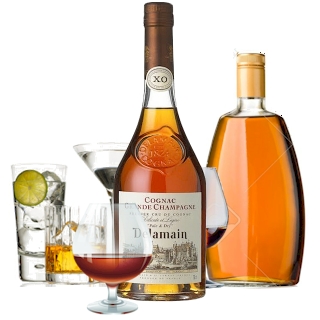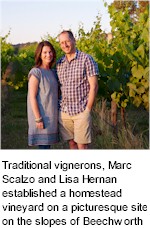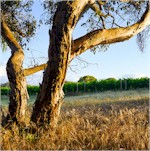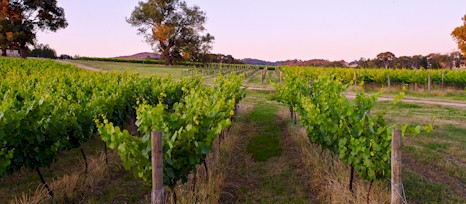


Piano Piano vineyards are located on a highly sought after golden mile amongst some of Beechworth�s most notable wine producers. They focus on making premium, estate grown single vineyard wines, vintages with a strong sense of place. Rather than impose his own personality on the wines, Marc has always strived to let the vineyard tell its own story. Marc started his wine education around the kitchen table at home. His father Mario introduced him to a wide selection of local and Italian wines. After graduating with a Science degree from Monash University and working for IBM for five years, the lure of wine was strong. Marc then studied Wine Science at Charles Sturt University and has many years of practical experience, including seven years as a winemaker at Brown Brothers and vintages at Giaconda, Seresin Estate (NZ), Delegat�s (NZ) and John Gehrig Wines. Marc is also Chief Winemaker at Rutherglen Estates.

In 1997 Marc planted his first vines with Geoff Simpson at Brangie vineyard in King Valley. Oliver�s Blend, named after their eldest son and Mario�s Blend, named after Marc�s father are from the Brangie Vineyard. After searching for seven years Marc and his wife Lisa purchased their property at Beechworth in 2003. The Beechworth hills are famous for granitic soils and fine cool climate wines. They have since planted Chardonnay in 2006 and Shiraz in 2008. Sophie�s Block Chardonnay was named after their daughter Sophie who was born the year the Chardonnay was planted and similarly Henry�s Block Shiraz was planted, the year their youngest son Henry was born.
The famous Beechworth region is known for its iconic wines. Much of this can be attributed to the altitude, granitic soil and climate. Piano Piano vineyard is located on Beechworth-Wangaratta Road, at an altitude of 400m. The Chardonnay is planted on the southeast facing slope, in deep decomposed granitic top soil over rich clay. Sophie�s Block is situated on the coolest part of the site.
This cooler mesoclimate enhances the delicate but powerful flavours in the grapes. Given its proximity to some of Beechworth�s finest vineyards, the Chardonnay is already showing the exciting potential of this site. Five different clones, including the Bernard clones have been close planted at 1.2m x 2.4m rows to maximise intensity and complexity.

Piano Piano Shiraz was planted on the northeast facing slope in decomposed granite soils, characterised by white granitic pebbles on the surface of a decomposed granite loam mix. At a depth of one meter the underlying clay is critical to the water holding capacity of the block whilst the granitic soils supply that rare, ethereal quality that makes Henry�s Block Shiraz so special. To enhance the cool climate quality of the fruit, vine rows have been planted in an east west orientation. Four Shiraz clones were selected to add complexity and spice and the vines were also planted at 1.2m x 2.4m. Piano Pianos Beechworth vines complement the King Valley plantings, established in partnership with Geoff Simpson, in the late 1990s.
This property is situated on the banks of the Hurdle Creek in the lower King valley, on a site perfectly situated for growing red wine grapes. The soil profile of sandy loam sitting on a clay base is ideal for controlling vigor. This ensures the grapes are grown under slight stress, thereby decreasing yields and maximising flavour and colour intensity.
